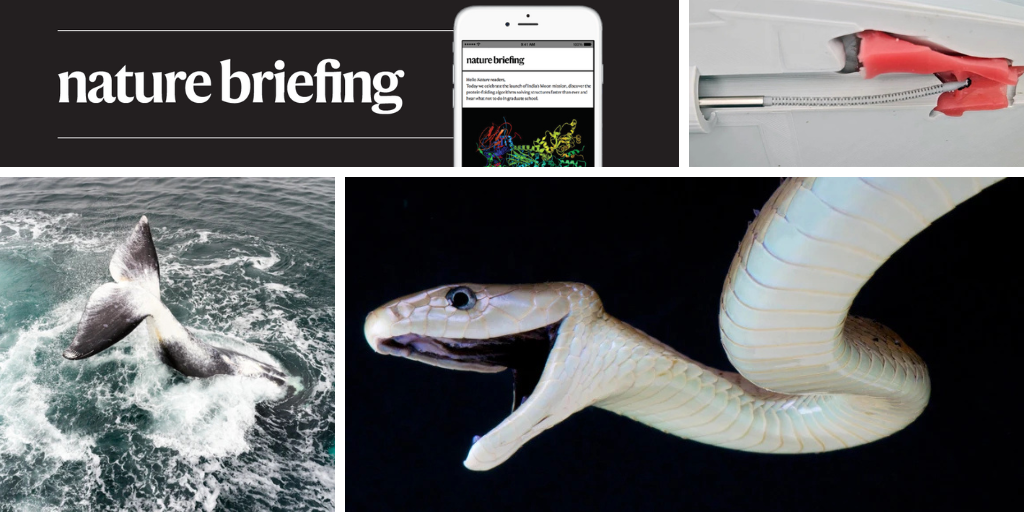
"Researchers travelled to northern Alaska to collect samples of tissue from the whales ( Balaena mysticetus) from Iñupiaq Inuit communities. The team found that the whale's cells produce a protein called CIRPB, which helps to mend potentially cancerous DNA mutations."
"Researchers exposed the camelids to venoms from 18 sub-Saharan African snake species, including cobras and mambas. They then isolated nanobodies - small versions of antibodies that can penetrate tissues and bind to tissue-destroying toxins - from the animals and combined eight of them into a single cocktail."
Bowhead whale cells produce a cold-activated protein called CIRPB that helps to repair broken DNA and mends potentially cancerous mutations, which may underlie lifespans exceeding 200 years. Researchers travelled to northern Alaska to collect tissue samples from whales in Iñupiaq Inuit communities. A broad-spectrum antivenom composed of eight nanobodies derived from a llama and an alpaca neutralized venom from 17 of 18 tested sub-Saharan African snake species in mice and reduced skin damage. An AI model from Google DeepMind accurately predicted the trajectory and growth of Hurricane Melissa and informed warnings to affected nations. An elephant-inspired bioprinter and a new method to test AI progress were also reported.
Read at Nature
Unable to calculate read time
Collection
[
|
...
]